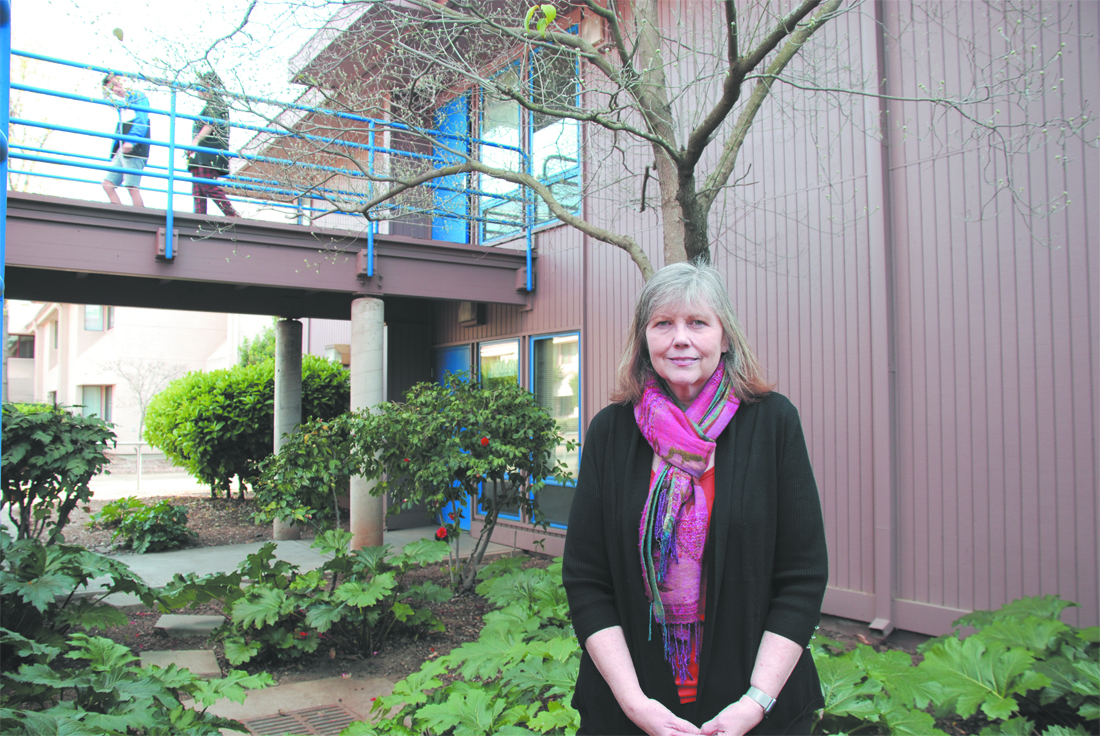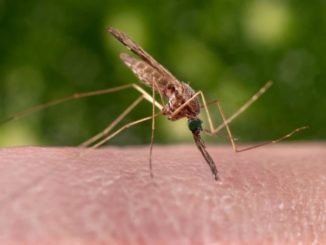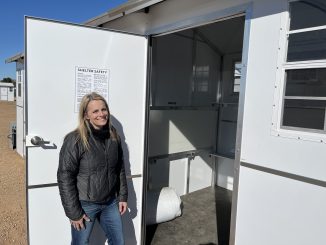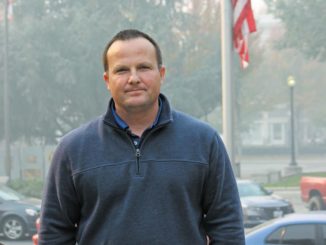
Over three decades at Chico State, Connie Huyck has learned to embrace unexpected challenges. She faced one over the weekend when she and her staff at University Housing needed to find new rooms for 27 students in twin dorms that administration decided would be reserved for coronavirus quarantines—then break the news to those students.
Huyck, executive director of University Housing, where she’s worked off and on for 15 years, had a message for her team, words born of experience.
“These are the things you can’t plan for or even know how to handle,” she said. “It is figuring [things] out as it happens…. It is uncharted territory in that respect.”
Indeed: Wednesday morning (March 11), Chico State President Gayle Hutchinson made another novel decision due to the coronavirus when she canceled in-person classes starting this Friday (March 13) through March 24, an extension of next week’s spring break so instructors can prepare for the exigency of campus closure and all courses going online.
These steps, among others, came after Butte County declared both a “local emergency” and “local health emergency” last Friday (March 6) due to coronavirus spreading in the Sacramento Valley. As Hutchinson told the CN&R, this situation is “dynamic.” The university, other educational institutions and local businesses have had to adapt their plans.
News changes quickly: As of press time, Butte County Public Health had no confirmed cases of a local resident with COVID-19; but with tests going directly from medical providers to labs, the department did not have a count of patients exhibiting symptoms and awaiting results.
Jordan Fraser, director of the Student Health Center at Butte College, is on the team coordinating the college’s coronavirus response planning. As at other places, measures include intensive disinfecting of facilities and buses, plus new signs and outreach to communicate health information.
“Remarkably, I would have expected to have a lot more people calling me being curious or worried, and there just hasn’t been that,” Fraser, a nurse practitioner, said by phone Monday.
In consultation with federal and state agencies, county Public Health relays updates to the health care, education and business communities. This guidance forms the foundation of decisions made by school officials—from K-12 through university—and recommendations issued to businesses by groups such as the Chico Chamber of Commerce.
Like its educational counterparts, Chico State has instituted special protocols for janitorial personnel and ramped up communication outreach, along with readying tech for online instruction and other plans that began percolating Feb. 28. The university also has to consider students living on and around campus. That’s where Konkow Hall comes in: House 1 and House 2, downstairs dorms in the six-unit cluster, together can accommodate 33 people.
Konkow sits near Nettleton Stadium, at Warner Street and West Sacramento Avenue. Sunday (March 8), housing staff met with residents of the two houses and offered accommodations elsewhere for the rest of the term, along with assistance relocating. Move-out should finish today (March 12), Huyck told the CN&R on Monday; then the university will clean and ready the houses for any coronavirus patients to isolate.
For the Konkow students, Huyck said, “we really tried to make it as easy a transition as possible in a really difficult situation.”
Hutchinson, echoing administrators from Butte College and the Chico Unified School District, said by phone Tuesday that assessments from county Public Health shape her decision-making. She also receives state-level briefs, including from the CSU Chancellor’s Office.
“Every emergency is different, every emergency is dynamic, every emergency has its own context,” Hutchinson noted. Crises such as the Oroville Dam spillway evacuation and the Camp Fire “were much more local, community-focused, and we were in a much more heightened emergency response—whereas this [coronavirus] takes a global stage, hasn’t hit Butte County yet, [and] we’re able to get ready a little bit differently.”
The university already has started technical work required to transition in-person classes to web platforms. Wednesday’s announcement doesn’t impact classes already conducted online, and Hutchinson told the CN&R that the university’s actions—the Konkow move, prep for internet classes—were strictly proactive, not driven by local circumstances.
CUSD Superintendent Kelly Staley views school closures as a last resort. COVID-19 has struck predominantly elderly and health-compromised patients. While district schools do have medically fragile children, transmission of the disease is a bigger problem than infection among that age group, she said, and CUSD has broader considerations.
“We have such a big impact on our community in terms of the 13,000 kids we take care of every day,” Staley said Tuesday, “so … I really try to keep our schools open and provide a safe place for students. But if it’s not safe, that’s when I’m going to say we have to close.”
CUSD has notified parents, per state and county prescription, to keep students home when they’re sick. The Chico Chamber of Commerce relayed comparable advice to businesses, along with tips for keeping employees healthy and work environments virus-resistant.
Katy Thoma, president and CEO of the chamber, said Monday that her members hadn’t expressed much worry about coronavirus. She didn’t either, apart from declining to shake hands. In fact, she’s heartened in a way, based on how Chicoans react to tough situations.
“I think we learned a lot from the Camp Fire,” she said. “Anymore, I would never fret about a disaster and [fear we’ll] not have the community rise up.”



